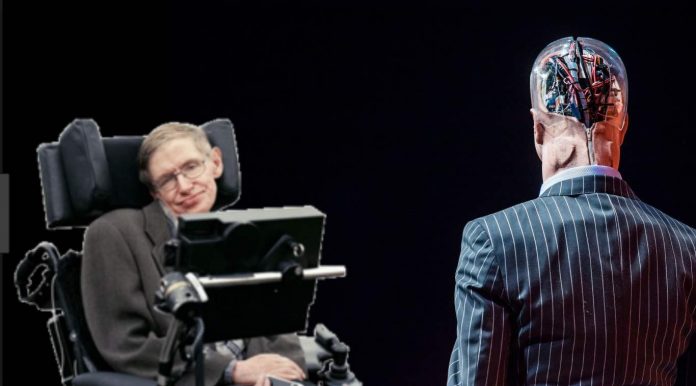STEPHEN Hawking made a grim prediction before his death that a race of superhumans will rise up and destroy the social fabric as we know it.
THE late Stephen Hawking believed advances in genetic science would lead to a future generation of superhumans that could ultimately destroy the rest of humanity.
In newly published writings, Dr Hawking suggested an elite class of physically and intellectually powerful humans could arise from rich people choosing to edit their DNA and manipulating their children’s genetic makeup.
“I am sure that during this century, people will discover how to modify both intelligence and instincts such as aggression,” he wrote.
“Laws will probably be passed against genetic engineering with humans. But some people won’t be able to resist the temptation to improve human characteristics, such as memory, resistance to disease and length of life.”
The renowned theoretical physicist, who died in March this year, made the grim prediction in a collection of essays and articles recently published by the UK’s Sunday Times, prior to the release of a book containing a collection of writings by Dr Hawking.
Those without the means will become relegated to a sub-class of “unimproved humans,” he suggests in Brief Answers To The Big Questions due out this week. The wealthy who have power and access could tweak their genome to boost strength, memory and disease resistance.
This two-tier system of humans, Dr Hawking predicted, could have grave social consequences.
“Once such superhumans appear, there will be significant political problems with unimproved humans, who won’t be able to compete,” he wrote. “Presumably, they will die out, or become unimportant. Instead, there will be a race of self-designing beings who are improving at an ever-increasing rate.
“If the human race manages to redesign itself, it will probably spread out and colonise other planets and stars.”
While the rise of a superhumans won’t happen in our lifetime, new gene-editing technology has already led to concerns about the potential of designer babies.
Most notably, CRISPR-Cas 9 is a recently emerged technology that can be thought of as acting like a tiny pair of molecular scissors that can cut and alter nucleotides which make up DNA, enabling scientists to find and modify, or replace, genetic defects.
“The fear is that they could use these techniques to create, some way, genetically modified people. You know designer babies where parents pick and choose the traits of their babies, make them taller, stronger, smarter or something like that,” NPR said in a 2016 report about a Swedish scientist using the technique to edit human embryos.
Dr Hawking was known for bringing clarity to some of the most mind-bending ideas in science such as the nature of black holes and the possibility of a multiverse.
But towards the end of this life, he grew increasingly vocal about future problems the world might face.
In recent years, Stephen Hawking had raised the alarm about the potential threat of artificial intelligence — something that also featured in the latest collection of published writings.
“The advent of super-intelligent AI would be either the best or the worst thing ever to happen to humanity,” he wrote.
“The real risk with AI isn’t malice, but competence. A super-intelligent AI will be extremely good at accomplishing its goals, and if those goals aren’t aligned with ours we’re in trouble.”
Speaking at the Web Summit in Lisbon in November last year, the famous physicist said the scary reality is we just don’t know yet whether AI is good or disastrous for the world.
“We cannot know if we will be infinitely helped by AI or ignored by it and sidelined, or conceivably destroyed by it,” he said.
While AI could be hugely beneficial for reducing poverty, disease and restoring the natural environment, it’s impossible to predict “what we might achieve when our own minds are amplified by AI”.
“AI could be the worst invention of the history of our civilisation, that brings dangers like powerful autonomous weapons or new ways for the few to oppress the many.
“AI could develop a will of its own, a will that is in conflict with ours and which could destroy us.”
Hawking warned that scientists and global governments needed to focus on maximising benefits for society rather than pure capability.
“We need to employ effective management in all areas of its development,” he said. “We stand on a threshold of a brave new world. It is an exciting, if precarious place to be and you are the pioneers,” he told the audience of researchers and technologists.








